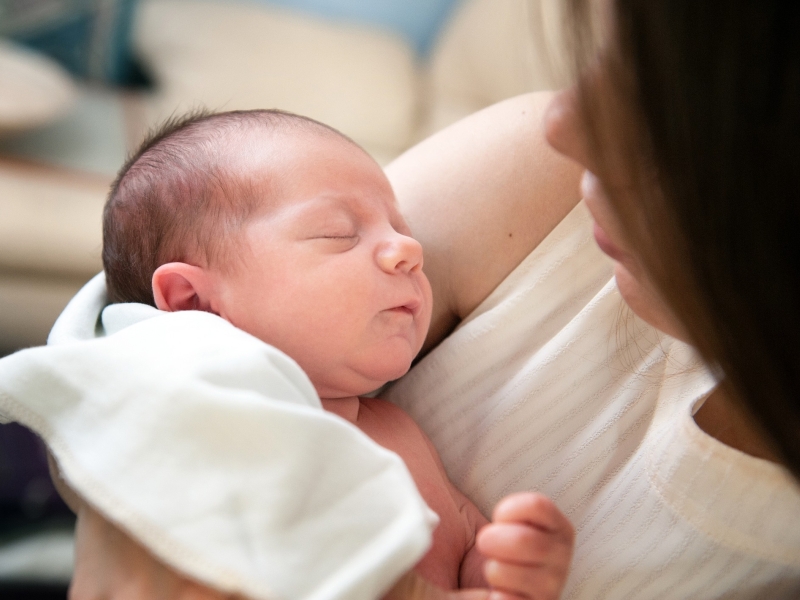A child’s immunity is still developing in the first months of life. It is therefore quite common for a baby to catch a cold or a febrile illness several times in the first year. For a newborn, consult a doctor about any change in their state of health, for older babies it depends on the severity of the problem. What exactly does this mean and how do you know that it is time to see a doctor?
We asked paediatrician Dr. Lucie Skalova directly.
How is it with newborns, i.e. babies up to the age of one month? When exactly should you see a doctor?
If the newborn begins to have any problems with drinking, can’t hold on to the breast, refuses to drink, urinates less, cries inconsolably for more than an hour, has a skin rash, has difficulty breathing, has a rectal temperature above 38 °C after subtracting 0.5 °C, or you repeatedly measure a high temperature (above 37.5 after subtracting) it is time for it to be examined by a paediatrician on the same day, within 24 hours at the latest.
What about infants from one month to one year, when should we go to the doctor and what can we do at home?
There is no unequivocal answer, but basically it’s the same as it is for newborns, only with a fever you can afford to go to the doctor after 2-3 days of a fever above 38 °C, provided that the child is otherwise alert, drinks and wees enough and doesn’t have a rash. If you have any doubts whatsoever, it is best to visit a doctor earlier or ask their opinion on your child’s state of health by phone.
What should we be prepared for at the doctor’s? How do they examine a sick child? Should we take a urine sample or not?
It depends on what the problem is. Generally, your doctor will always ask you how long the problem has lasted, how it has developed, whether the patient has a high temperature/fever and how high. Whether the child is drinking and eating, if it vomits, has diarrhoea or a cough, what sort of a cold it has. Depending on the child’s illness and age, in the case of smaller children, newborns and infants, the doctor will also ask whether they have lost weight and by how much, whether or not someone has had similar difficulties in the family or the baby will be weighed.
Next, the child will be examined. The doctor will listen to the heart and lungs, examine the neck and the skin, feel the abdomen or examine the ears. Based on this examination, your doctor may refer you for a specialized examination. For example, ENT, X-rays and the like.
Alternatively, the doctor may examine the urine or CRP in the surgery (CRP or C-Reactive protein is a marker protein made in the liver that increases very quickly during inflammation). The doctor can also perform a strep test for a sore throat - it depends on the surgery’s equipment. CRP is a marker and does not always need to be done, it is always at the discretion of the doctor.
Urine should be collected for testing if the fever is above 38 °C and lasts for more than 3 days. If possible, take the first urine of the morning with you, you should bring it to the doctor within 2 hours at the latest. The urine should be collected in a boiled container. Try and catch the middle of the stream, preferably after showering and washing the genitals properly.
In the winter months, children often have a cold. When to go to the doctor with a cold?
It depends on the child’s age and its general state of health. First, try and treat it at home using the basic measures: nasal aspirator, humidified air, a raised position, plenty of fluids, sea water or nasal drops. If the child’s condition worsens, or it starts to have a fever, cough, etc., see a doctor.
What about coughing? It is also a common health complication in children. When can we treat it at home and when is it necessary to seek medical advice?
If the cough worsens, but the child still breathes freely, a doctor’s examination after 3 days is enough. If acute breathlessness develops, seek medical attention immediately.

